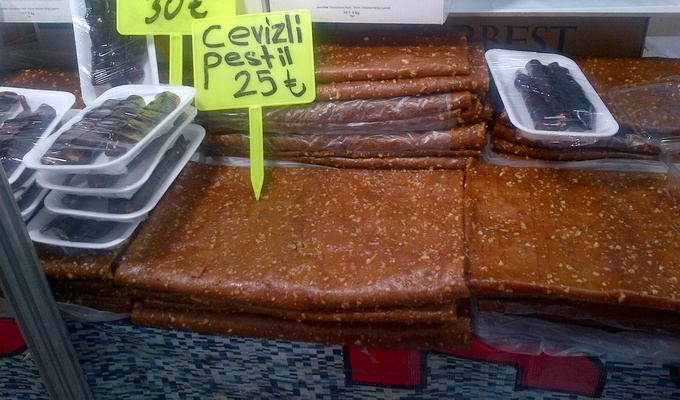Pestil, a Turkish word meaning dried fruit pulp, is best exemplified in the English term "fruit leather." Fruit leather is made from mechanically pulverizing fruit, then spreading it out to dry into a tough, yet flexible and edible material which can be kept preserved for several months in an airtight container. In Armenian pestil is called pastel. In Greek it is called pastilos. In some regions of Turkey, including the southeastern city of Urfa, this fruit dessert is also called bastık.
A plum-based dessert from Bulgaria is also called pestil. It's prepared by boiling plums with sugar and water and cooling the mixture in a solid layer. Bulgarian pestil is sometimes thicker than its Turkish counterpart and might be cut in small pieces instead of rolled up.
Pestil might be made with different types of fruit beside plums. Apples, apricots, pears, peaches and melons are popular choices.
